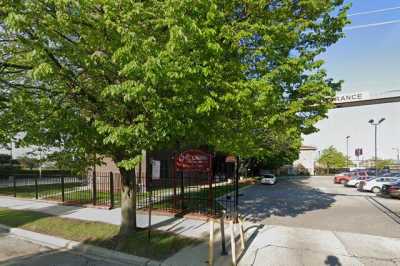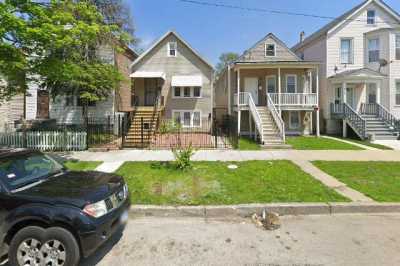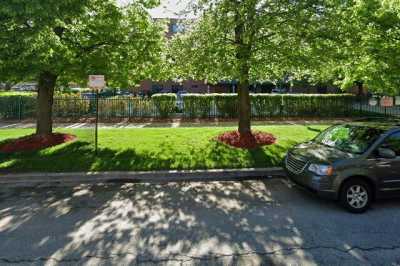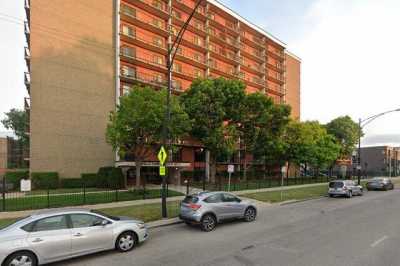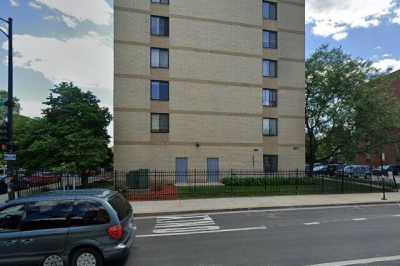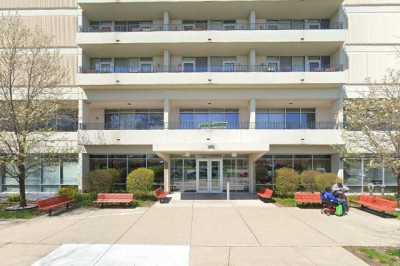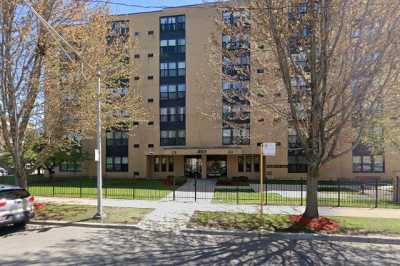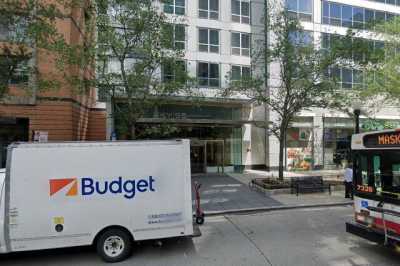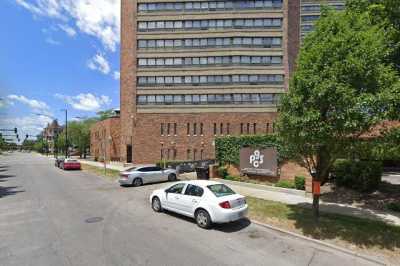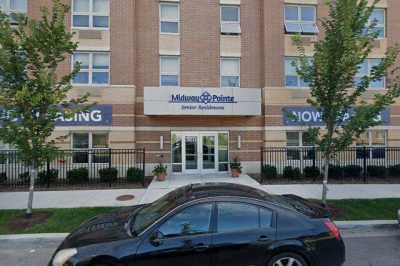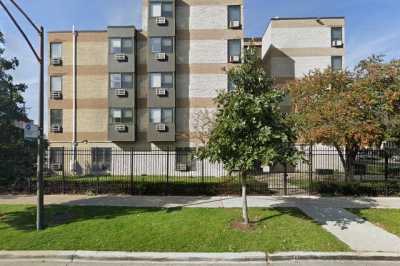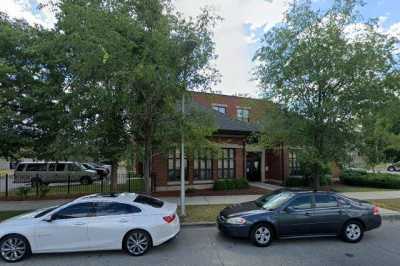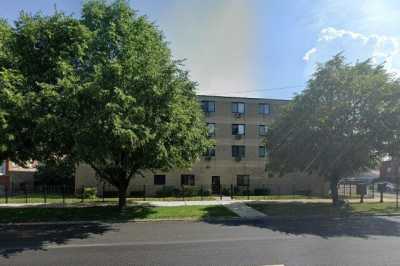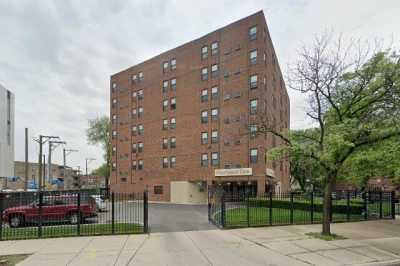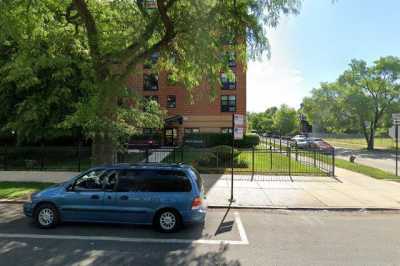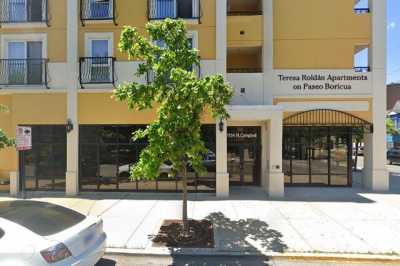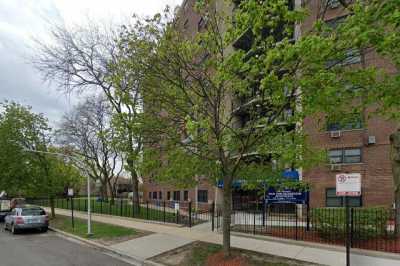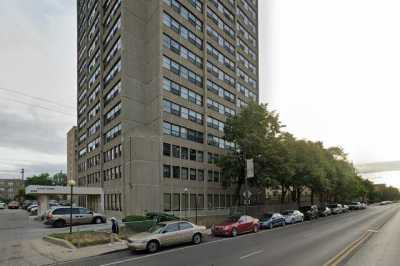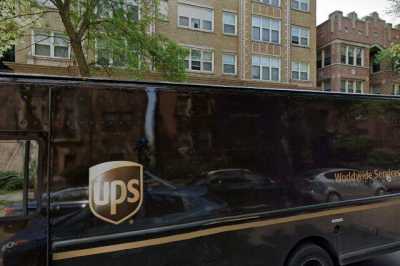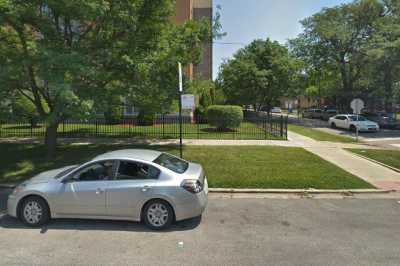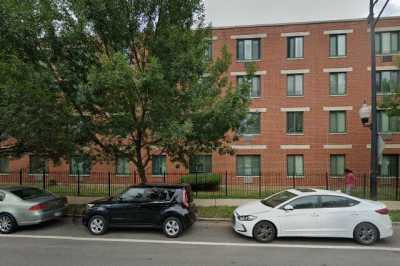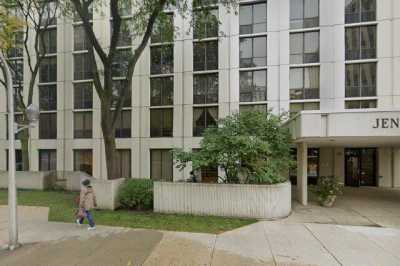
10 Best Independent Living Communities in Chicago, IL
Chicago’s diverse and growing senior population has an array of independent living communities designed exclusively for adults age 55+ to choose from. A Place for Mom partners with 42 independent senior living communities within a 10-mile radius of Chicago’s city center. These communities offer a range of convenient amenities to foster carefree retirement living — such as on-site maintenance, social lounges, fitness centers, and even meal services and housekeeping. The downtown location also provides residents with convenient access to the bustling city life while remaining a stone’s throw from the beautiful Lake Michigan shoreline.
With the help of this guide, you can browse independent living communities in the heart of Chicago. We’ve compiled information using our 20+ years of senior living experience, proprietary data on over 14,000 senior living communities across the country, and advice from local Chicago senior living experts. In addition to individualized criteria — such as pet accommodations, amenities, and social opportunities — you’ll find payment tips, Illinois independent living health and safety regulations, and other resources for Chicago seniors.
Chicago Independent Living Facilities | 1629 Reviews
My mom was a resident in this lovely senior community for four years and she loved it. The residents were kind, caring and looked out for one another. The West Loop location can't be beat. She'd often walked...
Our free advisors can help
- Compare local facilities
- Determine care type
- Schedule tours
- Evaluate pricing
This is a nice place to live. It is secure. I like my apartment. I enjoy the security of the building. The staff is nice to deal with. There are a lot of activities for the residents to choose...
Our methodology
How we rank order the Chicago community options above
We developed a proprietary recommendation system that orders Chicago community options based on factors we know are important to seniors and their families:
- Proximity to your search location
- Availability of recent, high-quality reviews
- The amount of detailed community information available
Where we source our information
14,000+ communities
We collect proprietary data from our network of 14,000+ senior living communities in the U.S., with regular refreshes of data and information
350,000+ reviews
We have 387,000+ reviews from senior living residents and family members that provide first-hand accounts about senior living communities
- Costs of independent living in the Chicago area
- What families are saying about independent living in Chicago
- How people pay for independent living in Chicago
- Understand Illinois laws and regulations for independent living communities
- Features of independent living communities in Chicago
- Chicago independent living services and amenities
- Explore senior care with confidence
- Unfamiliar with Chicago? Highlights for seniors
Costs of independent living in the Chicago area
The cost of an independent living community within 10 miles of the Chicago city center averaged $3,203 per month in 2022, according to A Place for Mom’s proprietary data. This figure includes rent as well as any add-on fees that the community offers. Chicago independent living costs can vary based on floor plans, amenities and add-ons, and location. North of downtown Chicago tends to have a higher cost of living, whereas south of downtown often has lower costs. The following figures represent baseline Chicago area independent living rental costs, not including add-on fees.
Average monthly cost of Independent Living in Chicago, IL vs. nearby cities
Average monthly cost of Independent Living in Chicago, IL vs. the state and national average
Average monthly cost of Independent Living in Chicago vs. other types of senior living
Median monthly costs of Independent Living in Chicago, IL by room type
Average cost of Independent Living in Chicago over time
What families are saying about independent living in Chicago
Recent reviews for independent living in Chicago
Cantata Adult Life Services a CCRC in Brookfield, IL
Liberty Village in Elmhurst, IL
Victory Centre of Elk Grove in Elk Grove Village, IL
How people pay for independent living in Chicago
Independent living community costs are not covered by public sources like Medicare or Medicaid, though in-home care services may be covered for medically qualifying seniors. However, there are many private ways to pay for independent living. Veteran Affairs (also known as VA) pensions and benefits may also help to offset costs of independent living for eligible senior veterans and their spouses.
- Income: Even if you are no longer bringing in a paycheck, you may still have income in the form of Social Security benefits, savings, pensions, or investments.
- Proceeds from the sale of a house: Many seniors transitioning to independent living are looking to downsize so as not to worry about home ownership and maintenance in retirement. Selling a home can not only free up such responsibilities, but it can also provide some equity to cover the cost of rent at an independent living community.
- Reverse mortgage: If selling your home isn’t feasible, a reverse mortgage can enable you to take a loan from the home’s current equity.
- Life insurance: Some life insurance policies can be sold to a third party or surrendered for cash, which can then be used to cover senior living during your retirement. Talk to your insurance provider to see what your options are.
- Long-term care insurance: Long-term care insurance does not cover the cost of rent at an independent living community. However, it can be used for in-home care services for medical conditions. Some seniors choose in-home care rather than moving to an assisted living community. Policies do vary though, so plan ahead and check with your policy provider to see what is covered in terms of future care needs.
Housing support for independent living in Chicago
Unlike support-focused senior living communities such as assisted living and memory care, independent living community costs are not not covered by Medicaid or Medicare.
Some independent living communities accept HUD 202 waivers, which are a form of housing assistance offered by the U.S. Department of Housing and Urban Development.
Supplemental Security Income (also commonly called Social Security or SSI) may also aid you in paying for independent living, depending on the community and your eligibility.
Chicago resident Medicaid resources
Supportive Living Program fact sheet. Illinois’ Supportive Living Program is intended as an alternative to nursing care. It is offered to lower-income individuals 65 and older or individuals age 22+ with disabilities. Take a look at Supportive Living eligibility requirements, available service options, payment methods, and more.
About Aid to the Aged, Blind or Disabled. Aid to the Aged, Blind or Disabled, or AABD Cash, is a program offered by the Illinois Department of Human Services. AABD Cash was created to grant financial support to Illinois residents who are elderly, blind, or disabled and need help paying for care services. Explore eligibility as well as how to apply.
Illinois Application for Benefits Eligibility. Illinois offers several benefit programs to help lower-income residents afford food, health care, child care, Medicare premiums, and other costs of living. Understand and manage your Illinois benefits, including Medicaid; Aid to the Aged, Blind or Disabled (AABD Cash); Supplemental Nutrition Assistance Program (SNAP); and more.
Contact the Illinois Department of Human Services. The Illinois Department of Human Services, or IDHS, offers many support services to Illinois residents who are not able to be financially independent. These resources can help you find Illinois Department of Human Services offices or get in contact with the right department for your needs.
Illinois Healthcare Portal for Seniors. This portal can help you find information on health care assistance for Illinois senior residents.
Chicago benefits check service. Here you can find out your eligibility for over 70 state and federal benefits programs.
Additional Chicago Medicaid contacts
Chicago Senior Services
Chicago Senior Services hotline: 312-744-4016
Hours: Monday through Friday, 9 a.m. – 5 p.m.
Email: Aging@CityofChicago.org
Facebook.com/ChiSeniorServices
Chicago resident Medicare resources
Social Security Administration. Find out about Medicare benefit options offered by the U.S. Social Security Administration, like medical care coverage.
Online Medicare application. From this page you can apply for Medicare through the U.S. Social Security Administration.
Illinois Long-Term Care Ombudsman Program. This program offers Illinois seniors advocacy to protect their rights and improve their quality of life, especially in long-term care facilities. If you or your loved one are being mistreated or receiving poor care in a senior living community, the ombudsman program can help you receive the proper support.
Illinois Department on Aging Long-Term Care. Explore information on long-term care insurance and other resources to assist in covering the costs of Illinois senior care.
Veterans and their surviving spouses can use their Veterans Affairs (VA) pension toward rent in an independent living community. If the veteran or their spouse is disabled, they may also qualify for the Aid and Attendance benefit, which is an additional pension stipend that can be used to cover the cost of any service meant to improve a senior’s quality of life. To qualify for the Aid and Attendance benefit, a veteran must qualify for a VA pension and meet at least one of the following criteria:
- Have limited eyesight
- Require assistance from a caregiver to perform activities of daily living
- Spend much of each day in bed due to illness
- Live in a nursing home due to physical or mental disability
Disabled, housebound seniors in need of home care services may be eligible to receive the Housebound allowance to help cover the costs of these services. Note that you cannot receive both the Aid and Attendance benefit and the Housebound allowance at the same time.
For more information, you can visit the Illinois Department of Veterans’ Affairs Services/Benefits page, where you will find information on local programs to aid veterans and their families with education, employment, senior care, and more.
The Illinois Department of Veterans’ Affairs also provides Veteran Service Officers (VSOs) for benefits assistance. Veteran Service Officers can help you get the most out of the VA benefits available to you and your family. Explore the VSO Directory to find the local VSO office in your county. Once a senior is enrolled in their VA health care benefits and receiving support services, VA patient advocates at VA Chicago health care can help VA patients navigate their care services.
Related: Visit our complete guide to VA benefits
Number of Chicago veterans
Percentage of Chicago veterans age 75+, according to the U.S. Census Bureau
Additional Chicago VA contacts
2122 W. Taylor St.
Chicago, IL 60612
Hours: 8 a.m. – 4 p.m., Monday through Friday
Phone: 800-827-1000
Community Resource & Referral Center (CRRC)
1141 S. California Ave.
Chicago, IL 60612-9998
Phone: 312-569-5750
Hours: Monday through Friday, 8 a.m. – 4:30 p.m.
Phone: 312-569-7959
Chicago Vet Center
3348 W. 87th St., Suite 2
Chicago, IL 60652-3767
Phone: 773-962-3740
Hours: Monday through Friday, 8 a.m. – 4:30 p.m.
Evanston Vet Center
1901 Howard St.
Evanston, IL 60202
Phone: 847-332-1019
Hours: Monday through Friday, 8 a.m. – 4:30 p.m.
Understand Illinois laws and regulations for independent living communities
Illinois independent living communities are required to enforce a 55 year age minimum per the Illinois Administrative Code.[02] While families and children of seniors may be able to live in independent living depending on the community, residents will need to verify that at least one member of their household is 55 or over.
While Illinois does not have many requirements specific to independent living, these buildings must comply with the legal standards of any type of housing. While building codes vary across the state of Illinois, Chicago living spaces are required to maintain standards such as:
- Fire retardant building materials [03]
- Minimum square foot requirements for specific numbers of people
- Bathrooms accessible to each bedroom without requiring passage through another bedroom
- Proper and accessible building exits
To report a building code violation in Chicago, you can call 3-1-1 or fill out an online service request.
All living spaces are also required to be ADA compliant, which means that reasonable accommodations and modifications are made for individuals with disabilities. Under federal law, owners of housing facilities cannot deny tenancy to individuals with disabilities.
Reasonable accommodations are adjustments to rules or policies so that tenants with disabilities are not left out of the activities or benefits offered to other tenants. Property managers may provide accommodations, such as the following:
- convenient parking
- acceptance of rent payment on a date that corresponds to tenant’s disability payments
- enabling tenants with disabilities to have equal access to the complex’s shared spaces or activities
Modifications involve making changes to the apartment complex and unit to make it more accessible to those with disabilities. This can mean adding a wheelchair ramp or hands-free entrance or simply installing handrails in bathrooms. The costs of these modifications are to be covered by the owner of the rental property rather than by the tenant with the disability.[04]
Find contact information and resources for tenant rights’ advocacy, housing discrimination, housing-related legal aid, eviction assistance, and more through Illinois’ Tenant Rights, Laws and Regulations website.
Additional Chicago Department of Health resources
Illinois Department of Public Health — Chicago headquarters offices
122 S. Michigan Ave., 7th and 20th Floors
Chicago, IL 60603
Phone: 312-814-2793
69 W. Washington St., 35th Floor
Chicago, IL 60602
Phone: 312-814-5278
COVID-19 regulations for Chicago independent living communities
There are currently no COVID-19 regulations in place for Chicago independent living communities.
Features of independent living communities in Chicago
Chicago independent senior living communities typically offer private apartments or condos. Floor plans often include living areas, fully equipped kitchens, and wheelchair-accessible bathrooms with hand rails. Check out some other features common to Chicago independent living communities:
- Balconies or patios
- High-speed internet access
- Storage units
- On-site maintenance and management staff
- Wheelchair-accessible units and common areas
Some communities even offer the following types of on-site services for additional fees:
- Laundry and housekeeping
- Meal services
- Emergency staff on call
- Transportation services
- Concierge services
- Third-party care services
Resident-only clubhouses are also common to Chicago independent living communities. These clubhouses promote socialization among residents and give them access to even more shared amenities, such as the following:
- Social lounges and game rooms
- Movie theaters
- Libraries and media rooms
- Business centers
- Fitness centers
- Pools
- BBQ areas
- Social calendars
Chicago independent living communities provide the active senior with an exciting urban locale that has convenient access to entertainment, shopping, dining, and the sparkling Lake Michigan shoreline. On-site storage and maintenance foster a more relaxing environment than home ownership. Some independent living communities even offer an aging-in-place option for an even more worry-free living experience.
Aging-in-place services
Chicago’s independent living communities with aging-in-place options are typically part of a larger senior living facility that includes multiple care types and accommodations on one campus, such as assisted living and memory care. Communities that offer these add-on care services are ideal for the senior who may need more assistance down the line. If a senior’s care needs ever evolve past the care offered in the independent living community, they can just add on the care services they need without having to relocate to a new community. Aging-in-place features provide security in the event of surgery, illness, or other medical events. A Place for Mom has 17 partnered communities in Chicago that offer aging-in-place services, with access to home care agencies, memory care, and skilled nursing services on site.
Chicago independent living services and amenities
Availability of select dietary accommodations in Chicago independent living
Availability of select dining options in Chicago independent living
Availability of select programs and activities in Chicago independent living
Explore senior care with confidence
Know where to start.
Identify the right care for your loved one with our free assessment.

See what you can afford.
Understand cost and payment for long-term care based on your loved one's needs.

Find top facilities for you.
Free, personalized guidance from our Senior Living Advisors can help you narrow your search.

Tour your favorite facilities.
Our free touring checklist can help you choose the right community.
Unfamiliar with Chicago? Highlights for seniors
Number of Chicago seniors age 65+, according to U.S. Census Bureau
Percent of Chicago residents age 65+
Number of veterans in Chicago
Percentage of Chicago’s older adults who self-report being in overall good health, according to Center for Community Health Equity
Health care for seniors in Chicago
Chicago residents have many innovative and highly rated medical centers to choose from. Several of Chicago’s medical facilities also offer specialty geriatric care.

Northwestern Memorial Hospital
Northwestern Memorial Hospital is the highest ranking hospital in the state of Illinois, according to U.S. News and World Report. It’s nationally ranked in 10 adult specialties, and it partners with Northwestern University Feinberg School of Medicine to foster world-class patient care and medical innovation.

Rush University Medical Center
Rush University Medical Center is ranked No. 2 out of all Chicago hospitals, according to U.S. News and World Report. Rush is known for outstanding patient care, education, and medical research, with roots going back nearly 200 years.

University of Chicago Medical Center
University of Chicago Medical Center is the third-highest ranked hospital in Chicago and in the state of Illinois, according to U.S. News and World Report. Known for exceptional geriatric care services, University of Chicago Medical Center is a nonprofit academic hospital established in 1927.

NorthShore University Health System
NorthShore University Health System is the fourth-highest ranking Chicago hospital, according to U.S. News and World Report. The NorthShore system includes six hospitals and over 140 medical centers all over the Illinois area.
Transportation for seniors in Chicago
While driving in the city is an option, heavy traffic and limited parking can make it a challenge. Fourteen of A Place for Mom’s partnered independent living communities in Chicago offer transportation services at an additional cost. For those without transportation, many Chicago residents count on public transportation. The most convenient and cost effective way to get around is the Chicago Transit Authority “L” train. The Chicago Transit Authority also has over 100 bus routes.
While Chicago is relatively walkable, it’s quite big, so it can be helpful to know what other options are available. For the active individual, Chicago’s Divvy bike-share system can be a fun way to get around, and the Metra Rail train is great for commuting to the Chicago suburbs. Chicago also provides AC Med Tran transportation services specifically for seniors, veterans, and individuals who require a wheelchair or mobility assistance.
Compiled from data about Chicago’s population, public transportation, walking and bike routes, and more, the Windy City has received the following WalkScore ratings, [08] each out of 100:

Walk Score

Bike Score

Transit Score

Senior activities in Chicago
As the most populous city in the Midwest, Chicago always has something exciting to offer. Whether you’re looking for great food, fine arts, exciting sports, or exhilarating shopping, you’ll find it in Chicago. The striking architecture of the city contrasted against the glistening Lake Michigan shoreline creates an idyllic backdrop for your golden years.
The closer to the city center, the more social opportunities seniors have with others who are in the same stage of life. The Norwood Park Senior Center sits just outside the city center’s 10-mile radius. It features a state-of-the-art fitness center, a library, and a reading room. Additionally, lunch is served Monday through Friday. Chicago seniors can make new connections as they partake in games, Zumba and yoga classes, seasonal water aerobics, music appreciation, and educational classes.
Chicago’s lovers of the arts can explore the offerings of the Belmont Theater District, Museum of Contemporary Art, and Chicago Symphony Orchestra, to name just a few local art centers.
When the family comes to visit, the Lincoln Park Zoo and Lincoln Park Bird Sanctuary offer free admission daily, or you can take advantage of the Children’s Museum senior discounts. Chicago residents can also visit the wonders of the ocean for a reduced rate at Shedd Aquarium.
When the grandkids go back home, take a trip to nearby Elgin for a scenic evening at Grand Victoria Casino on the river. Or, stay local and dine, sample locally crafted wines, and enjoy entertainment at City Winery — Riverwalk Winegarden in the spring and the City Winery — West Loop all year round.
The following are just a few Chicago attractions with senior discounts and specials:
Frequently Asked Questions
Encore Village of Schaumburg, a CCRC, Brookdale Northbrook and Brookdale Des Plaines are the top-rated Independent Living facilities near Chicago, IL. These Independent Living facilities received the highest rankings based on verified family reviews. See full list of communities.
The average cost of Independent Living in Chicago is $6,099 per month. This cost may vary based on location, amenities, floorplan, level of care and other factors.
Test answer:
The average cost of Independent Living in Chicago is $6,099 per month. This cost may vary based on location, amenities, floorplan, level of care and other factors.
References
United States Census Bureau. (2021). Veteran status (S2101): Chicago [Data set]. American Community Survey.
Illinois General Assembly. Health Facilities and Regulation (210 ILCS 9/) Assisted Living and Shared Housing Act.
International Code Council. (2019, December 1). 2019 Chicago building code with revised April 2022 supplement.
U.S. Department of Housing and Urban Development. (2022). Reasonable accommodations and modifications.
A Place for Mom. (2022). A Place for Mom proprietary data.
U.S. Census Bureau. (2021, July 21). Chicago city, Illinois. QuickFacts.
Laflamme, E., Harper-Jemison, D., Jorgensen, E., Reina, M., Rushovich, T., Weaver, K., Prachand, N., Shah, R., Lange-Maia, B., & De Maio, F. (2019, August). Healthy Chicago databook: Older adult health. Center for Community Health Equity.
Walk Score. (2022). Living in Chicago.

More questions?
Ask an A Place for Mom local advisor at no cost.
- Park Ridge, Illinois
- Schaumburg, Illinois
- Orland Park, Illinois
- Northbrook, Illinois
- Downers Grove, Illinois
- Wheaton, Illinois
- Highland Park, Illinois
- Oak Brook, Illinois
- Hinsdale, Illinois
- Arlington Heights, Illinois
- Des Plaines, Illinois
- South Holland, Illinois
- Oak Lawn, Illinois
- La Grange, Illinois
- Bolingbrook, Illinois
- Homewood, Illinois
- Country Club Hills, Illinois
- Lombard, Illinois
- Skokie, Illinois
- Elk Grove Village, Illinois

